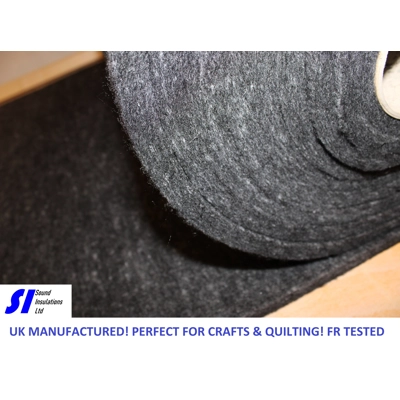
Welcome to our boat insulation blog, here you can find important information on insulating a boat.
Insulating a boat is crucial for several reasons, especially if you plan to live aboard or cruise in various climates. Here are some key points on why boat insulation matters:
-
Performance Enhancement: Quality boat insulation can enhance your boat’s overall performance. Closed-cell foam insulation, well-suited for marine projects, provides durability and rigidity. It’s water impermeable, doesn’t rot, and withstands harsh conditions, contributing to the boat’s longevity and ease of maintenance.
-
Temperature Regulation: Proper insulation helps regulate the boat’s interior temperature. Closed-cell spray foam insulation, with a high R-value, ensures better thermal insulation. Whether you’re living on the boat or using it for leisure, maintaining a comfortable temperature is essential.
-
Noise Reduction: Open-cell foam insulation effectively reduces noise, especially engine sounds. A quieter boating experience is beneficial during longer stays on the boat.
-
Structural Integrity & Mould Resistance: Spray foam insulation adds structural integrity and minimizes maintenance needs. It’s lightweight (open-cell) or slightly heavier (closed-cell), balancing insulation efficiency and boat weight.
-
Cost Efficiency: Proper insulation saves energy, reduces condensation, and lowers heating/cooling costs. It’s a smart investment that pays off in the long run.
Why is it important to insulate my boat bulkhead?
Insulating a boat bulkhead is essential for several reasons:
-
Temperature Control: Proper insulation helps maintain a comfortable temperature inside the boat. It prevents heat loss during colder weather and keeps the interior cooler in hot climates.
-
Condensation Prevention: Insulation minimizes condensation, which can lead to mold, mildew, and structural damage. Closed-cell foam insulation is particularly effective in preventing moisture buildup.
-
Noise Reduction: Insulating bulkheads reduces noise transmission between different areas of the boat. This is especially important for privacy and a peaceful onboard experience.
-
Structural Integrity: Insulation adds rigidity to bulkheads, enhancing their structural integrity. It also contributes to overall boat stability.
-
Energy Efficiency: Well-insulated bulkheads reduce energy consumption for heating or cooling. This is beneficial whether you’re cruising or living aboard.
Which Insulation Materials Should I Use?When it comes to insulating boat bulkheads and engine bays, Class 0 closed-cell foam insulation is an excellent choice. Let me explain why:

-
Class 0 Rating: Class 0 foam is fire-resistant and complies with Building Regulations. It is ideal for marine environments.
-
Effective Insulation: This foam provides reliable protection against condensation and prevents energy loss. It is dust free and fibre free making it ideal for boat interiors.

-
Installation: Class 0 foam is lightweight, flexible, and easy to install. It can reduce energy losses by upto 80+%.
Remember to choose the right thickness based on your specific needs.

-
Sound deadening on boats is a critical aspect of marine engineering, aiming to enhance the comfort and safety of the vessel's occupants.
Products like ButylMAT and DeciLAM are at the forefront of this technology, providing effective noise reduction solutions. ButylMAT, a butyl rubber-based material, is particularly valued for its ease of application and ability to tackle the noise emitted from diesel engines. DeciLAM, on the other hand, is known for its insulation properties, contributing to a quieter and more enjoyable boating experience. The application of these materials in areas such as the engine compartment can significantly reduce the noise levels, which otherwise can cause discomfort and even health issues over prolonged exposure.
With the right sound deadening materials, boaters can enjoy a more relaxing ride, communicate more easily, and comply with boating noise regulations, ensuring a serene journey on the water.
Installing ButylMAT on your boat is a straightforward process that can significantly reduce noise levels and enhance your boating experience.
Begin by cleaning the surface where the ButylMAT will be applied, ensuring it is free of dirt, grease, and any old adhesive residue. It's important to have a clean surface for the best adhesion. Cut the ButylMAT to the required size, and carefully peel off the easy release backing. Apply the material 200-300mm at a time to avoid any folds or creases.
Press firmly to ensure good contact with the surface. For areas around screws or fittings, small strips of ButylMAT can be used to ring each hole, providing additional sealing. Once in place, ButylMAT acts as a flexible, durable barrier that can withstand the harsh marine environment while reducing unwanted noise from engines and other sources.

Remember, the key to a successful installation is preparation and patience, ensuring each step is completed thoroughly for optimal results. If you're unsure or need further guidance, consulting a marine insulation specialist or referring to instructional videos can provide additional insights into the process.
ButylMAT is a high-quality sound deadening material that has been developed to perform in the most demanding environments.
It is a premium exterior grade aluminium butyl product, designed to reduce unwanted noise and vibrations in various applications such as vehicles, boats, and HVAC systems. The material is praised for its ease of installation, requiring only a simple peel and stick application, making it accessible for both DIY enthusiasts and professional installers. ButylMAT's effectiveness is attributed to its composition, which includes a UV stable filmic layer on top of a thin aluminium layer, enhancing its performance for its weight and thickness. Additionally, it is tear-resistant, allowing it to conform to complex geometries while maintaining a low profile at only 1.7mm thick. This UK-manufactured product is versatile, with applications extending to automotive, marine, and roofing systems, providing a solution for sound deadening and thermal management.












